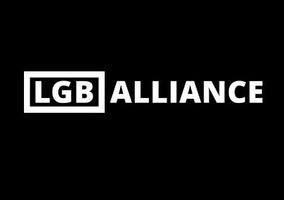The statements issued by the Charity Commission on live cases provide useful reminders of the type of issues which attract the Commission's regulatory attention. They also point to steps charity trustees can take to avoid such attention - or manage it, if it cannot be avoided.
The Commission issues statements on the opening of a statutory inquiry or a regulatory compliance case into a charity and occasionally as updates on long-running cases. During July and August 2023, eight such statements were issued of which five relate to faith charities. So what can faith charity trustees learn?
Is there a focus on particular faiths?
The faith charities involved in the five cases on which statements were made in this period - and those issued through 2023 - are all either Jewish or Muslim. This should not be taken as a sign that the Commission's focus is exclusively on such charities. It is clear from my case load, and the experience of umbrella bodies such as Gurdwara Aid, that charities of all faiths continue to attract the attention of the Commission.
Have the charity's funds and assets been applied in accordance with its objects?
A concern raised in more than one of the cases here is whether charitable funds and other assets have been used for the intended purposes – ie in a way consistent with the charity's objects and the intentions of the donor. This is a common area of concern for faith charities. Problem areas include:
- Collecting donations from the congregation to aid similar faith communities overseas when the charity's objects are limited to the UK or the area surrounding the faith building.
- Collections made in response to emergencies or urgent social needs - natural events such as floods or social problems such as a need for safe spaces for people to play sport.
- Failed collections: where a charity seeks to collect for a particular purpose but can not complete it because circumstances change or too little is raised.
Action: These are issues that can be addressed easily with a governance review and clear procedures for charitable appeals.
Have the charity’s accounts been delivered on time?
A common prompt for regulatory action is a simple but important failure: delivering statutory accounts late. This can be a sign of more fundamental problems and charity trustees should be asking searching questions if their charity consistently fails to deliver accounts on time.
Other risk areas include the use of blank cheques or an over reliance on cash transactions - both highlighted in the cases here.
Action: Why not review your charity's compliance with the Commission's guidance on internal financial controls?
How are faith charities handling internal disputes?
The inquiry into Dudley Central Mosque and Muslim Community Centre follows “an unresolved dispute between two groups representing the charity” and “extensive previous engagement”. This sort of dispute is not unusual in faith charities. There is often a long, complex history, which may involve both factual and legal disputes as well as complex organisational politics. One tool available to the Commission where a dispute is long running is the appointment of an interim manager, as in this case.
While in some cases, an interim manager is appointed to the exclusion of the existing charity trustees, that can be a high-risk approach in a community based faith charity where the board must balance the complex and sometimes competing needs of those in the communities serviced by the charity. An alternative approach seen in several recent cases is for the Commission to appoint an interim manager with a narrower role, perhaps focused on reviewing governance arrangements, revising the charity's governing document or ensuring an election takes place to appoint new trustees who can take the charity forward.
Action: There is no quick fix for the governance issues which give rise to prolonged disputes of this sort. Even with the involvement of the Commission and an interim manager, these are often lengthy, uncertain and reputationally damaging situations. However, it is possible to reduce the likelihood of such problems and, where they arise, to resolve disputes before the Commission, an interim manager or the courts are involved. Doing so involves investing in reviewing and improving the charity's governance. A carefully framed and well organised governance review is a good starting point.
Related Articles












